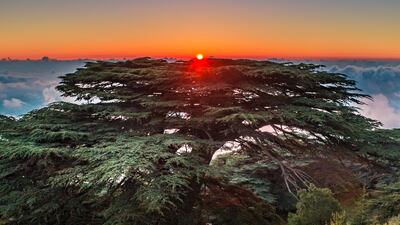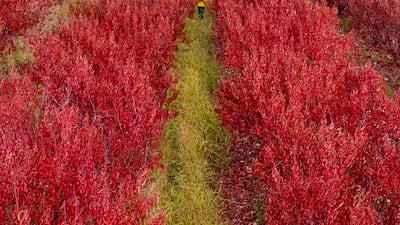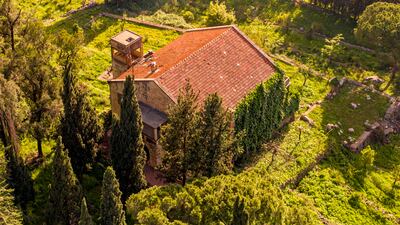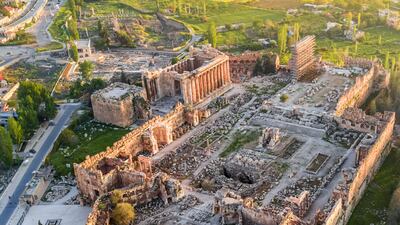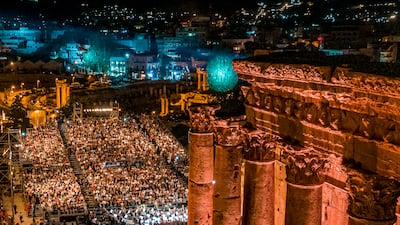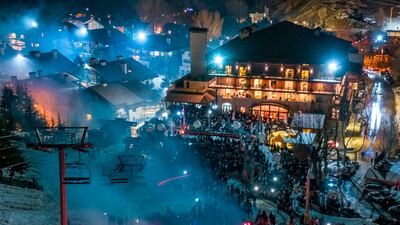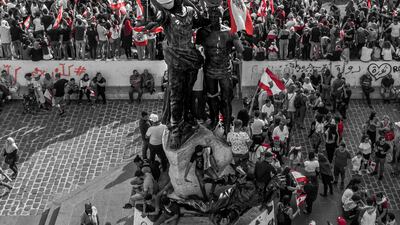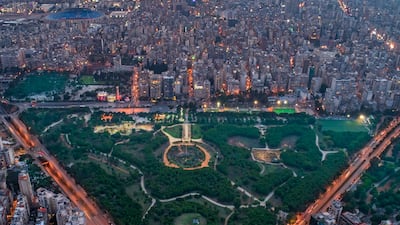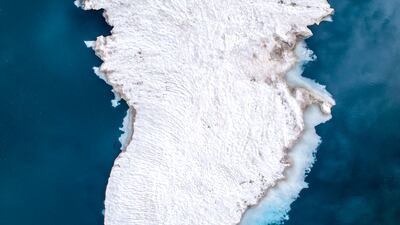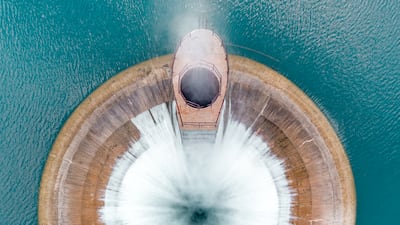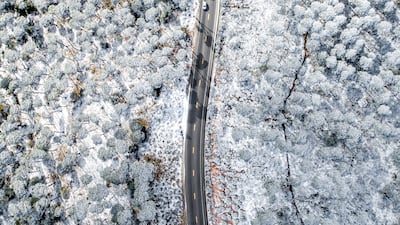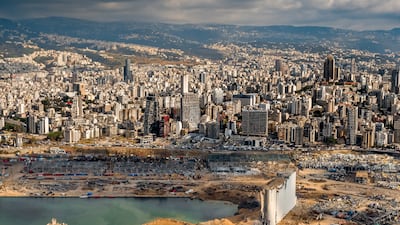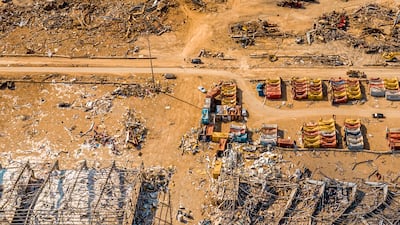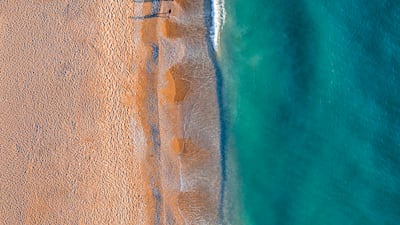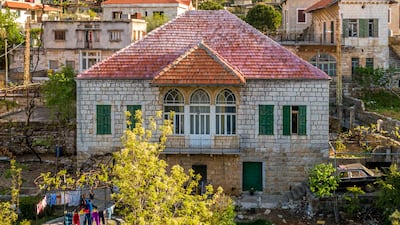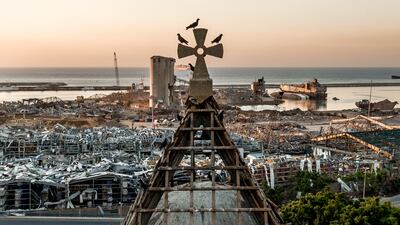With a drone in hand and hope for change in his heart, Rami Rizk is out to alter the world’s perception of Lebanon.
The photographer, 32, stepped away from his law studies to make capturing his homeland’s spectacular landscapes his full-time job.
“We have a beautiful country,” Rizk told The National. “I just never imagined that I would be taking pictures of it for a living.”
Photography was barely his hobby when he started practising over five years ago. But his fascination for quadcopters and drones pushed him down an unexpected path.
One day he was snapping photos for fun on road trips with his friends, the next he was depicting Lebanon as “never seen before”.
32, drone photographer
“When I flew my drone for the first time and started filming from above, I realised I could see what the bare eye could not,” Rizk said.
“That’s when I became curious and wanted to explore Lebanon from new angles.”
Gradually, the self-taught photographer started building an online portfolio of his work, which garnered a lot of attention.
“I was surprised at how much people liked my photos,” Rizk told The National. “But it pushed me to keep going and keep learning, and it got me to where I am today.”
His first muse and photography inspiration was his home town, Jezzine, about 70 kilometres south of Beirut.
“I’m lucky enough to come from a beautiful village, and I wanted to show that,” he said.
But his fascination for the country did not stop there, and Rizk has since explored many parts of Lebanon and taken more than 20,000 pictures of it.
“It’s a small country but there’s a lot to see and do,” he said. “Even though I’ve covered many areas by now, there are always more hidden gems to find.”
His constant quest for beautiful scenery to film comes from his desire to portray the crisis-hit land in a new light.
“I want to show Lebanon the way it deserves to be shown,” he said.
Lebanon is suffering from a two-year economic depression the World Bank has declared one of the worst in modern history. The consequences on its population have been dire, with almost 80 per cent now living in poverty.
The onset of the crisis in the summer of 2019 and the consequent nationwide protests in October that year drove Rizk to rethink his goals.
“I had to be realistic. I couldn’t only focus on the positive image when the living situation is different,” he says.
32, drone photographer
Since then, he has captured equally beguiling images of Lebanon from above, in all its hardship.
Some of the most striking pictures include a dark Beirut during a power cut linked to energy shortages in the summer of 2021, and a broken one after the deadly port explosion on August 4, 2020.
“I could no longer see only the good,” he told The National.
“I had to document the crimes committed by the ruling class against my people. It’s how we can show the world and say: ‘Look at what they did to us.’”
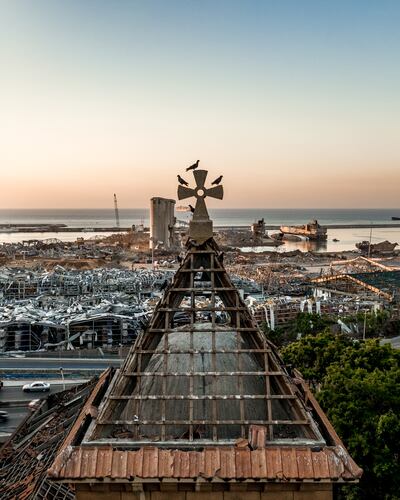
Even amid the destruction caused by the blast, which killed more than 200 people, Rizk flew his drone to the top of a church steeple on which birds perched idly, and took a picture.
“It’s one of my favourite shots, despite the tragedy,” he said. “For me, it shows hope that something good will eventually come one day.”

